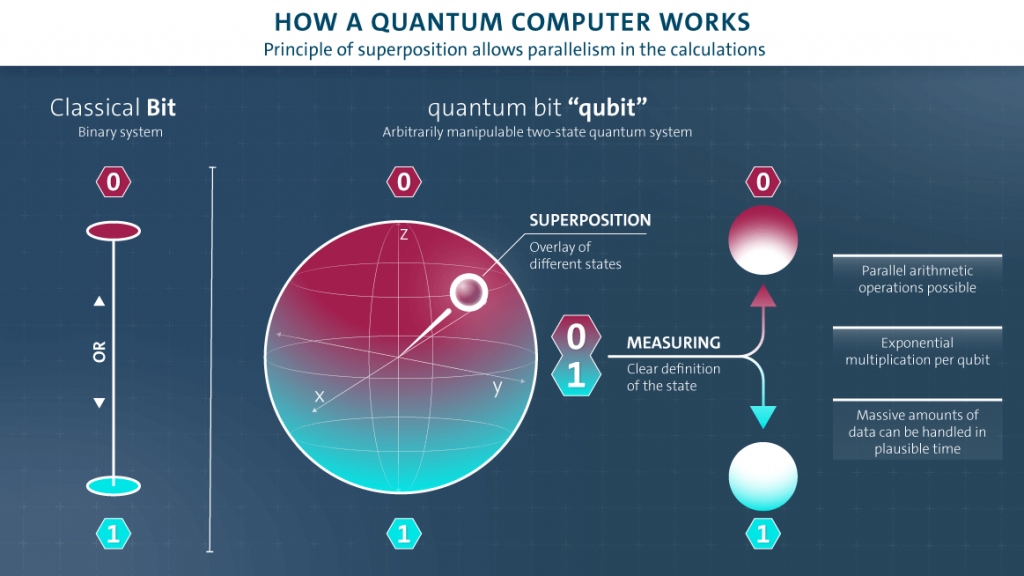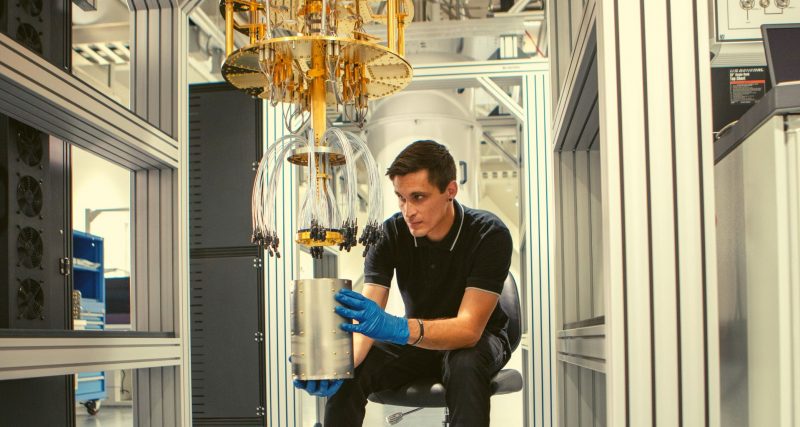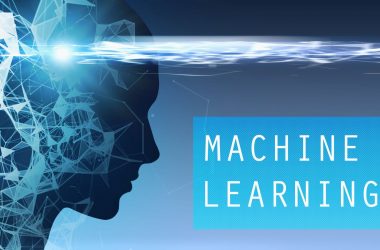When we delve into the world of computing, we generally find ourselves comparing classical computing with its high-tech counterpart – quantum computing. This comparison has taken center stage in discussions about future computing technology, mainly due to quantum computing’s potential to revolutionize the way we process and handle data. But what differentiates these two computing models, and why does this difference matter?
Classical Computing: The Reliable Workhorse
Classical computers, the cornerstone of modern technology, have been transforming society for decades. These machines use binary digits, or ‘bits,’ as the fundamental unit of data. Each bit carries information in a binary format, that is, either a 0 or a 1.
From your smartphone to supercomputers, classical computers utilize this binary framework to perform calculations and solve complex problems. Classical computers excel at tasks involving algorithms and computations where the process is well-defined, deterministic, and linear. They’ve transformed the world, enabling the digital revolution and supporting everything from data analysis, programming, web browsing, and even advanced simulations.
ADVERTISEMENT
However, they have limitations. Some problems, like factoring large numbers or simulating quantum mechanics, are exponentially difficult for classical machines. No matter how powerful these computers become, certain tasks are simply beyond their reach.
Quantum Computing: The Next Frontier
Quantum computing, a burgeoning field in the tech industry, provides a solution to classical computing’s limitations. Instead of relying on bits, quantum computers use quantum bits, or ‘qubits.’
A qubit leverages quantum properties like superposition and entanglement, giving quantum computers immense computational power.
ADVERTISEMENT
Superposition allows a qubit to exist in multiple states simultaneously, not just 0 or 1, but a combination of both. This capability exponentially increases the amount of data that can be processed at a given time. On the other hand, entanglement, a unique quantum phenomenon, enables qubits to be interconnected such that the state of one qubit can instantaneously influence another, regardless of distance.
Thus, where classical computers process data linearly, quantum computers have the potential to process vast amounts of data in parallel, tackling problems that are currently computationally infeasible.
The Quantum-Classical Difference: Breaking It Down
The principal difference between classical and quantum computing lies in their computational models. Classical computing is grounded in deterministic logic – every operation has a predictable outcome. Conversely, quantum computing employs probabilistic logic – the outcome of a computation is expressed as a probability, adding an element of uncertainty.
ADVERTISEMENT
Additionally, quantum computers can solve complex problems faster and more efficiently than classical computers. For instance, Shor’s algorithm, when implemented on a quantum computer, can factor large numbers more efficiently than any known algorithm on a classical computer.
Quantum Computing in the Real World
Why should we care about quantum computing? For starters, this technology has the potential to revolutionize many fields. In cryptography, quantum computers could crack codes and algorithms currently considered unbreakable. In pharmaceuticals, they could help model and understand complex molecules, accelerating drug discovery. In finance, quantum computers could optimize trading strategies and portfolio management. In artificial intelligence, they could vastly improve machine learning algorithms.
However, quantum computing is still in its early stages. While remarkable progress has been made, the development of a fully functional, error-free quantum computer remains a challenge. They are sensitive to environmental changes, and maintaining qubits in a stable state (quantum coherence) is difficult.
Despite these hurdles, tech giants like IBM, Google, and Microsoft are heavily investing in quantum computing, developing quantum hardware, and promoting quantum education.
Universities and startups worldwide are also at the forefront, pushing the boundaries of what’s possible with quantum technology.
Conclusion
The world is on the brink of a quantum revolution, and understanding the difference between classical and quantum computing is the first step to unlocking its full potential. Quantum computers, with their qubits operating in a superposition state and intertwined through quantum entanglement, offer exponential leaps in processing power over classical computers, effectively opening up new possibilities for problem-solving and data handling.

Challenges
However, the world of quantum computing is not without its challenges. Creating stable quantum states, managing quantum decoherence, and creating an error-correcting quantum algorithm are just a few of the technical hurdles that scientists need to overcome to make fully-functional, large-scale quantum computers a reality.
Cybersecurity
In the realm of cybersecurity, quantum computing is both a boon and a bane. On one hand, the power of quantum computers poses a threat to current encryption systems, which rely heavily on the difficulty of factoring large numbers – a problem quantum computers can solve more efficiently. On the other hand, this same power could give rise to quantum encryption and quantum key distribution, paving the way for theoretically unbreakable cryptographic systems.
Medical
In the field of medicine and pharmaceuticals, quantum computing could revolutionize drug discovery and design. By simulating the behavior of complex molecules, scientists could quickly analyze and test potential new treatments, drastically reducing the time and cost of bringing new drugs to market.
Economics and Finance
In finance and economics, quantum computers could optimize complex systems, like global financial markets, potentially providing more accurate predictions and risk assessments. This would allow businesses and investors to make more informed decisions, ultimately driving economic growth.
AI and ML
In the realm of artificial intelligence and machine learning, quantum computers could process and analyze vast amounts of data at unprecedented speeds, leading to more sophisticated and efficient AI systems.
Summary
Despite the enormous potential and the exciting prospects that quantum computing holds, it’s important to bear in mind that it’s not here to replace classical computing, but rather to augment it.
Classical computers will continue to excel at tasks they’re suited for, and quantum computers will tackle problems currently beyond reach.
In conclusion, the distinction between quantum computing and classical computing is not merely an academic exercise – it’s a topic of vital importance that holds the key to our technological future. The juxtaposition between the two paradigms underscores the incredible potential of quantum computers to transform numerous industries, from healthcare and finance to artificial intelligence and beyond. As we stand at the brink of the quantum age, the fusion of these two computing models promises to lead us into an era of unprecedented computational power and innovative capabilities.
Primary Image reference: AWS








